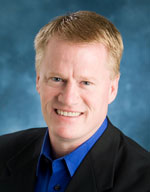Column: Bill Martin’s Legacy
Last week, Bill Martin announced he would step down as Michigan’s athletic director, effective right before next fall’s first football game.
I was a little surprised Martin announced his retirement in the middle of the day, in the middle of the week, in the middle of the football season. But, as surprises go, it wasn’t much of one. Martin has already put in a decade as the Wolverines’ athletic director, which is about average by contemporary standards. And he’s accomplished more during that time than anyone could have reasonably expected – perhaps including himself.
The big surprises happened years ago.
The first occurred when former UM President Lee Bollinger tapped his old friend to fill in for a few months while the school searched for a full-time athletic director. Martin – an avid sailor who never played or coached any school sports – did the job so well that Michigan’s coaches asked Bollinger to keep him. And it was perhaps a bigger surprise that Martin, who had already made millions building First Martin Corp. into the largest property owner in Ann Arbor, took the job – for a dollar a year.
He had no idea what he was getting into.
For almost a century, Michigan had arguably the most innovative, successful and stable athletic department in the country. Michigan needed only five ADs for its first 90 years – and five more just to get through the 1990s.
When Martin took over in 1999, the department labored under a $3.9 million deficit and the specter of an investigation by both the NCAA and the FBI into illegal payments made to basketball players – which proved to be true.
Martin should have asked for more than a buck.
The first order of business was to clear Michigan’s name. Martin did that by cooperating with the NCAA – even though they always make you regret it.
He then created a huge budget surplus, revamped the aging facilities, and hired coaches. He did great work on the first two tasks, and a pretty good job on the third.
He hired a few duds, most notably basketball coaches Cheryl Burnett and Tommy Amaker. But when he hired them, there was good reason to believe both would succeed. They just didn’t, so Martin let them go and replaced them with much better coaches.
Martin’s search for a new football coach, however, was undoubtedly the low point of his tenure. Lloyd Carr had already told Martin he would not be coaching much longer, but Martin seemed to be genuinely caught off-guard by Carr’s retirement after the 2007 Ohio State game.
Les Miles, a former Michigan player and assistant coach who was in the process of leading Louisiana State University to a national title, wanted the Michigan job – but Michigan did not even return his calls. Instead, Michigan offered the job to Rutgers head coach Greg Schiano – who publicly turned Michigan down. Martin then reassured people that he had a list of 20 candidates, which is the kind of list you put together a year before you actually need to pick one.
Martin and UM President Mary Sue Coleman had to scramble. They got lucky when Rich Rodriguez became interested only after his West Virginia team got knocked out of the national title chase by lowly Pitt. But the damage had been done to the Michigan football family, which remains fractured.
It will be up to the next AD to bring the family back together. The question is: should Michigan hire someone with an athletic background, or a business one? The race is on.
But whomever they pick, the next AD will no doubt make some mistakes and some enemies. Martin did both, and some might have been avoidable. But Michigan will be lucky if its next athletic director improves the department as much as Bill Martin did.
About the author: John U. Bacon lives in Ann Arbor and has written for Time, the New York Times, and ESPN Magazine, among others. His most recent book is “Bo’s Lasting Lessons,” a New York Times and Wall Street Journal business bestseller. Bacon teaches at Miami of Ohio, Northwestern’s Medill School of Journalism, and the University of Michigan, where the students awarded him the Golden Apple Award for 2009. This commentary originally aired on Michigan Radio.




